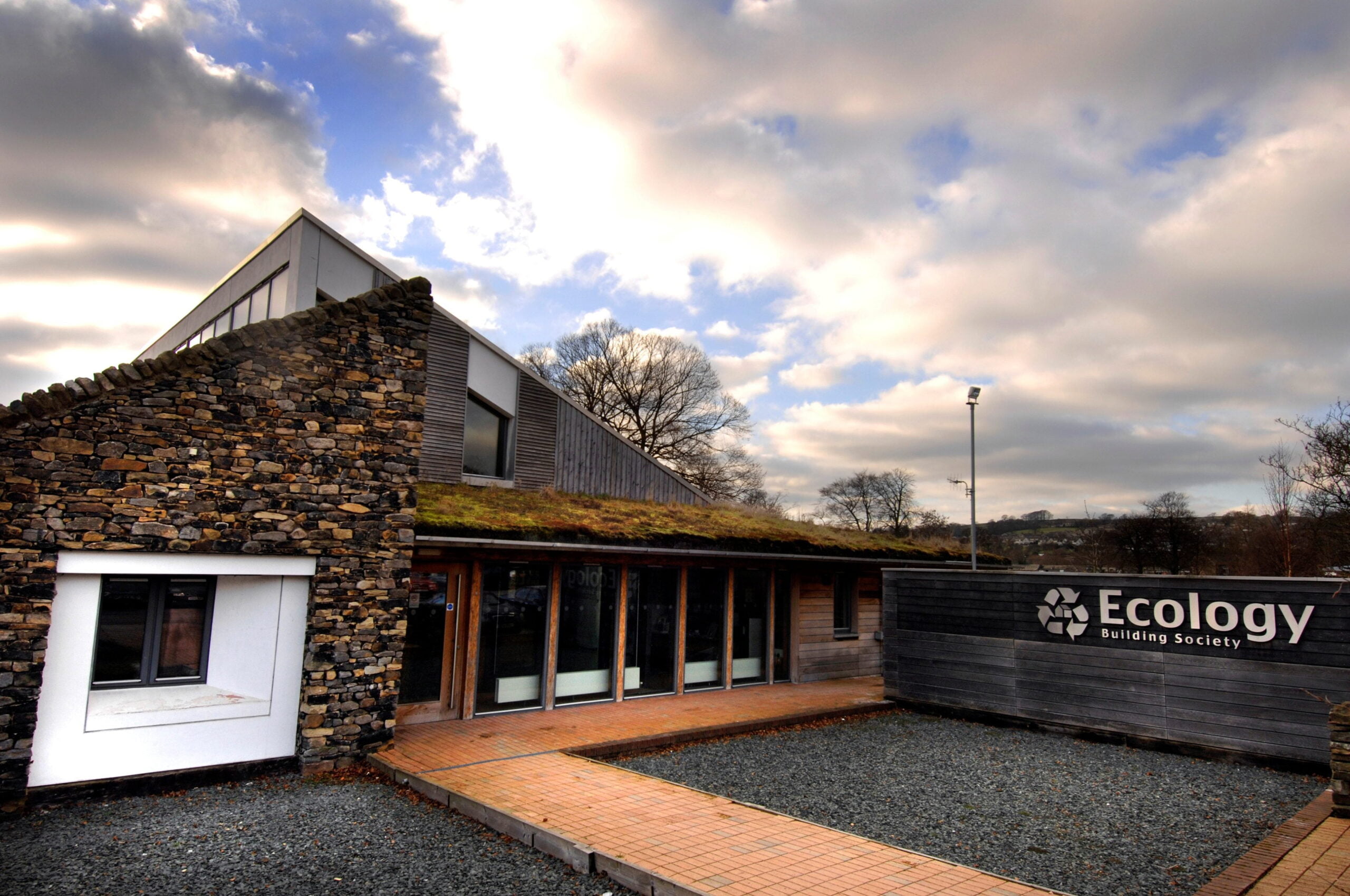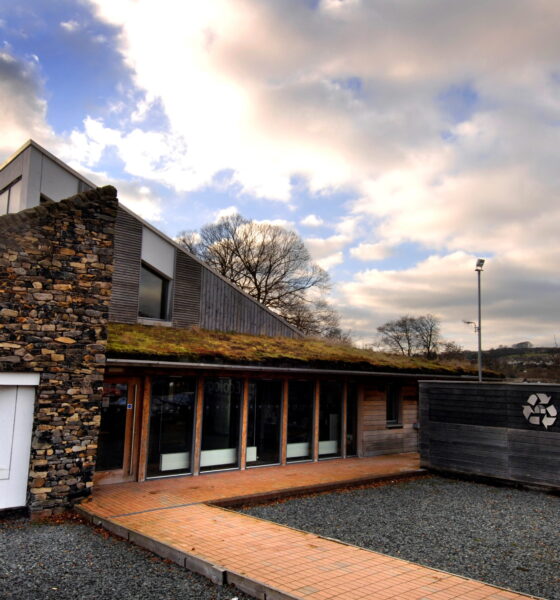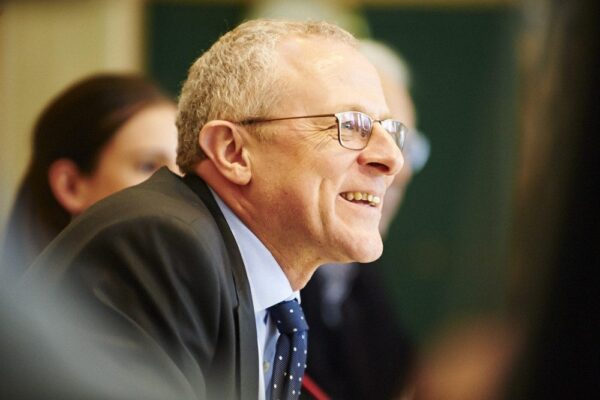

Economy
Sustainable banking: people want ‘to know what’s being done with their money’
Paul Ellis, chief executive of Ecology Building Society, brings Blue & Green Tomorrow up to speed on all things Ecology, sustainability, finance and banking.
This article originally appeared in The Guide to Sustainable Banking 2013.
Talk us through the last 12 months or so at Ecology.
We’ve continued to make good financial progress. We’ve had continued growth, continued profitability, and again, low levels of arrears and losses. So we feel we’re coming through the financial crisis in pretty good shape.
We’ve been recruiting across the business as we look to take ourselves onto the next level. And we recognise there is still a lot to do within our main objectives, in terms of promoting energy efficiency in our general housing stock, and our other strands such as taking more active roles in affordable housing.
We’ve been involved in the launch of the Empty Homes initiative, the National Empty Homes Loans Fund. It’s very much at a pilot stage, and there’ll be some learning and refining as we go forward, but we’re certainly very excited to be involved.
Institutionally, we’ve joined the Global Alliance for Banking on Values (GABV) which is a major international network of sustainable banks. This will enable us to connect with those banks that are intent on moving banking to a place where it fulfils its proper role of financing the real economy and the needs of communities and ordinary people.
Is moving to an alternative bank like Ecology more attractive than a year ago?
I don’t think any of the reasons why people have been minded to move have gone away. I don’t think there has been fundamental reform in our banking sector. There are various policy signs to suggest the problems are being recognised and we’ve seen a greater emphasis on better conduct from the regulators, particularly the Financial Conduct Authority, but I don’t think the mindset has changed.
Without the institutional reform, many of these initiatives will be doomed to failure and will be unable to achieve their full potential. That’s quite worrying.

Paul Ellis, chief executive of Ecology Building Society
More specifically, we’re disappointed in the events at the Co-operative Bank, which haven’t done the sector any favours. Fortunately, it appears that people understand that this is not a reflection on ethical banking generally speaking. This is perhaps a chance for those banks and other finance institutions like ourselves who really are committed to these principles to articulate our values and to demonstrate their practical application. The work we’re doing with the GABV again reinforces this.
One big gripe among many individuals is the lack of options available for alternative, ethical or sustainable current accounts. Can Ecology address this?
It’s very possible that you will see, in the relative short-term, a number of mutuals coming forward with sustainable current account options. That’s not to underestimate the amount of work that’s needed to actually achieve this, because the way the industry is structured means there are very high hurdles to overcome. But there’s a determination amongst a number of organisations, including ourselves, to make those options more widely available.
Ecology was named Company of the Year and Financier of the Year at the New Energy & Cleantech Awards 2013. What did those accolades mean to you?
They’re an endorsement of what we’ve been trying to do over a long period of time: to help create a market in this area, and to demonstrate long-term commitment to the renewables sector, within the overall framework of a need to improve the energy efficiency of our homes, and the whole way in which we deliver energy in terms of its environmental impact.
Why do people move to Ecology?
People who move to Ecology understand that we’ve got a good financial track record over many years, but their main reason is usually a desire to know what’s actually being done with their money – how their personal capital is being deployed.
We direct a lot of energy into making it clear exactly what we intend to do with our members’ money, and what we expect the outcomes to be of that activity. That’s what people value.
What do you see of the future of sustainable banking in the coming years?
We’ll see some convergence, hopefully a movement towards more support for the real economy from mainstream banks.
The sustainable banking sector will really lead the way in this because it doesn’t have the distractions that the mainstream banks do: it has a very clear focus on establishing the building blocks of an emerging sustainable economy.
You have one thing to say to someone to convince them to switch to Ecology. What is it?
Ask your bank how your money is deployed. Then ask yourself if you can have peace of mind about how the interest you received is generated. How is your money being used in the real world? Does that fit with who you are and what you believe?
Paul Ellis is chief executive of Ecology Building Society.
Further reading:
Small is beautiful: why alternative banks need to step up to the mark
The demise of the mutual sector? We don’t think so
Has your bank been naughty or nice in 2013?
Transforming Finance: how can we fix our broken financial system?


 Environment12 months ago
Environment12 months agoAre Polymer Banknotes: an Eco-Friendly Trend or a Groundswell?

 Features11 months ago
Features11 months agoEco-Friendly Cryptocurrencies: Sustainable Investment Choices

 Features12 months ago
Features12 months agoEco-Friendly Crypto Traders Must Find the Right Exchange

 Energy11 months ago
Energy11 months agoThe Growing Role of Solar Panels in Ireland’s Energy Future


























